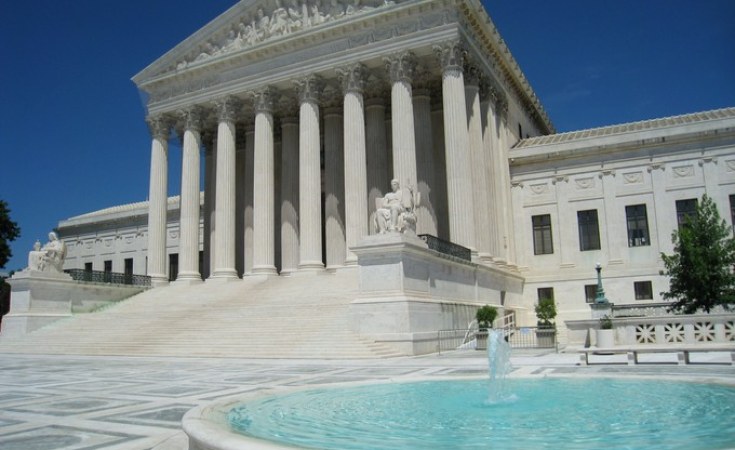Johannesburg — IBM had an extensive involvement in the apartheid regime in that it was the largest computer supplier in SA, the Khulumani Support Group says in its complaint filed in the New York Eastern District Court on Monday.
The group further states that ICL's computer network stored fingerprints and personal details on the 16 million South Africans whom the apartheid regime classified as black and was used to maintain the passbooks that were key to "influx control".
ICL and IBM are part of 21 international corporations and banks facing a lawsuit filed by Khulumani for "helping to prop up the apartheid state". The lawsuit was filed in the organisation's name as well as that of 85 of its 33 000 members.
In its court papers, Khulumani said: "For several years IBM knowingly rented a Model 370 computer system to the South African department of the interior which [was] used for the regime's national identity system. The IBM machine stored files on seven million people the regime designated as coloureds, Asians and whites."
It said that since IBM owned the equipment and leased it to the government, it could withdraw from the arrangement, but declined to do so. "IBM conceded the equipment may be used for repressive purposes, but also noted that: 'It's not really our policy to tell our customers how to conduct themselves.'"
In a statement, IBM media relations manager Roger Warner said that IBM had not been served with a complaint nor received any correspondence regarding a lawsuit.
The company said that according to recent media reports, the suit lacked merit.
"IBM divested from SA in 1987 by selling its local subsidiary. Until that divestiture, IBM had abided by all US export regulations in dealing with its customers and business partners in SA. In 1993, IBM responded to Nelson Mandela's call to foreign companies that had disinvested to return to SA, restoring its full operational presence.
"In addition, IBM invested millions of dollars in upliftment programmes for the disadvantaged people of SA, including the provision of technology to schools in disadvantaged areas, literacy programmes, entrepreneurial investment programmes and law reform."
ICL marketing manager Hans Bargholz said ICL had also not received any correspondence regarding the lawsuit.
Asked if it was fair that the company was accused of assisting the apartheid regime, Bargholz said: "I don't think it is fair to accuse anybody with something like this without evidence."
Neville Gabriel, a spokesman for Jubilee SA, a campaigning organisation for Khulumani, says the aim of the lawsuit is to get the companies involved to acknowledge their responsibility and contribute financially towards reconstruction and development programmes in the affected communities.
"The argument is that the apartheid government committed the crimes, but the companies have secondary liability. They supplied technology that enabled the apartheid government to carry out gross human rights violations."
Gabriel says the organisation decided to take the legal route after the companies "refused to take our course seriously".
Other major corporations named in the suit include British Petroleum, Shell, Mobil, Barclays, National Bank, Deutsche Bank, Ford Motor Company and DaimlerChrysler.
Gabriel says the complaint seeks to hold car manufacturers liable for providing the armoured vehicles that were used to patrol the townships. He says arms manufacturers and oil companies violated the sales embargoes on the apartheid government and banks provided the funding that enabled SA to expand its police and security apparatus.


